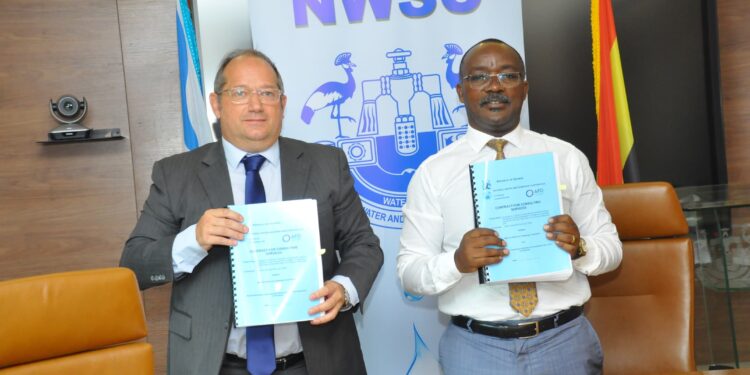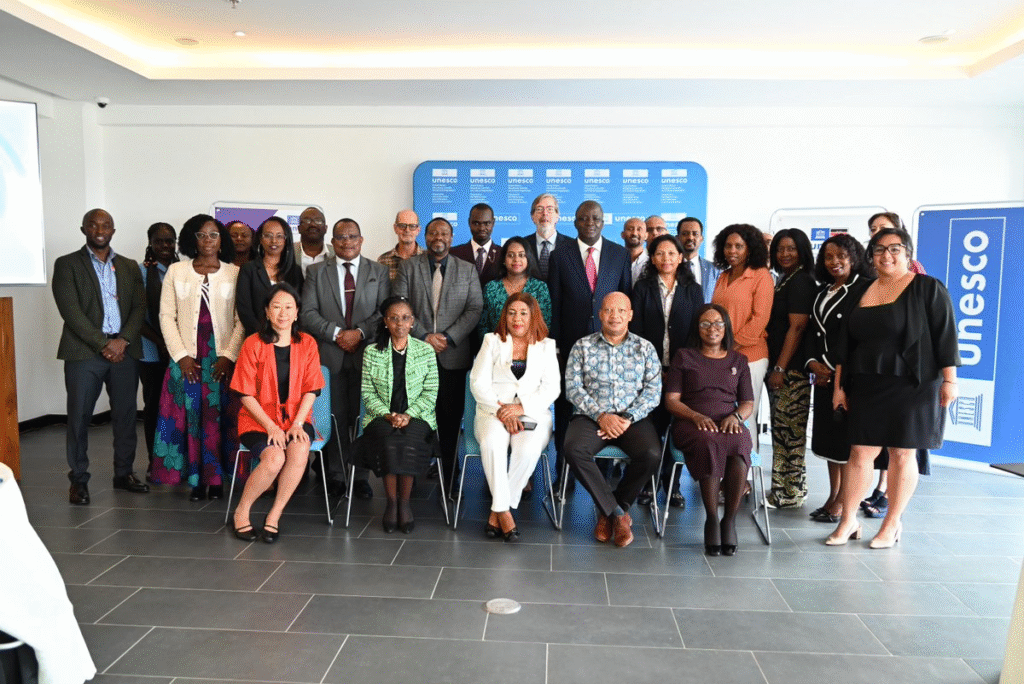NWSC Launches Feasibility Study to Enhance Water Supply in New Cities

The NWSC has launched a feasibility study, funded by AFD, to improve water supply and sanitation in Fort Portal, Hoima, and Lira, benefiting over 1 million people. The project includes infrastructure development, such as water treatment plants and sewer network upgrades, with a focus on addressing water supply challenges and expanding services to urban poor areas.
The National Water and Sewerage Corporation (NWSC) on Tuesday, January 30, 2024, flagged off a feasibility study in its bid to improve the water supply and sanitation situation in three cities including Fort Portal, Hoima, and Lira.
The project will also bolster water supply in surrounding towns through the development and improvement of water and sanitation infrastructure, said NWSC Managing Director, Eng. Dr Silver Mugisha during the project launch.
He said that the country’s utility secured a grant financing from the Agence Française de Développement (AFD) that it intends to use for consultancy services to undertake the feasibility study for the development of Water and Sanitation Infrastructure in the listed cities.
Flagging off the project, Dr. Mugisha said the utility provider has signed a 1,099,823.50 Euros (over UGX4.54 billion) contract with Seureca and Artelia Consortium with Warner Consultants Ltd as subcontractors to carry out feasibility studies for water and sewerage infrastructure.
“This is in line with the president’s water for all pledge in the newly created cities,” he said, adding that available data indicates that the demand for water services has gone up in the new cities.
He said that the project, which is endorsed by the president, will benefit over 1,050,000 people.
Under this project, NWSC seeks to construct a conventional water treatment plant and all associated infrastructure and rehabilitate, upgrade, and expand the existing sewer networks.
Other components will include refurbishing and expanding the sewage treatment plant and improving water supply and sanitation services to the urban poor.
“The sewer network coverage in all three Cities is very low with old infrastructure, necessitating rehabilitation and expansion of the network,” the NWSC MD said —explaining that the existing water supply systems are currently producing less than 70% of their design capacity due to hydraulic bottlenecks, old electromechanical equipment, and deficiencies in plant design.
For Fort Portal, he said that the raw water source in River Mpanga, which is degraded due to inappropriate land use practices within the river catchment.
“The raw water source for Hoima is groundwater, which is very unreliable and insufficient to satisfy the ever-increasing water demand in the oil City,” he said.
The consultancy will cover a period of 13 months from February 2024 to February 2025.
Dr. Mugisha tasked the consultants to deliver a good product within time and cost.
He reassured residents of the three cities that NWSC will not rest until the water supply is stabilized.
For a very long time, he said the three cities have struggled with chronic water supply challenges.
“This intervention is timely in addressing the water supply gaps,” he said, adding that similar projects are ongoing in Mbarara, Tororo, Masaka, Jinja, and Moroto.
The MD hailed the support from the President of Uganda and the Ministry of Water and Environment.
Mr. Christopher Lacaring, a representative from Seureca and Artelia Consortium with Warner Consultants, pledged to deliver the projects within time and cost.
He shared the consultant’s rich experience and past projects completed in Uganda.
Lacaring pledged to work closely with the beneficiaries for a purposeful and all-inclusive project.
Meanwhile, at least 12 town centers in Fort Portal city, including Bukuku, Busoro, Karambi, Karangura, Kichwamba, Kiko, Mugusu, and Ruteete are beneficiaries of the project. Others are Buheesi, Kibiito, Kisomoro, Nyatungo, and Kyenjojo.
In Lira City, Adyel, Ojwina, Ngetta, Kachung, Dokolo, and Amac have been listed as beneficiaries.
Kifaransa, KihuuraII, Kikunko, Buganya, Bwendero, Dwoli East and West, Kitoba, and Kihooro are beneficiaries Hoima City Project.
Other are Nyakakonge, Nyaituma, Kyamongi, Kyarungu, Kihwera, and Buhanika.







